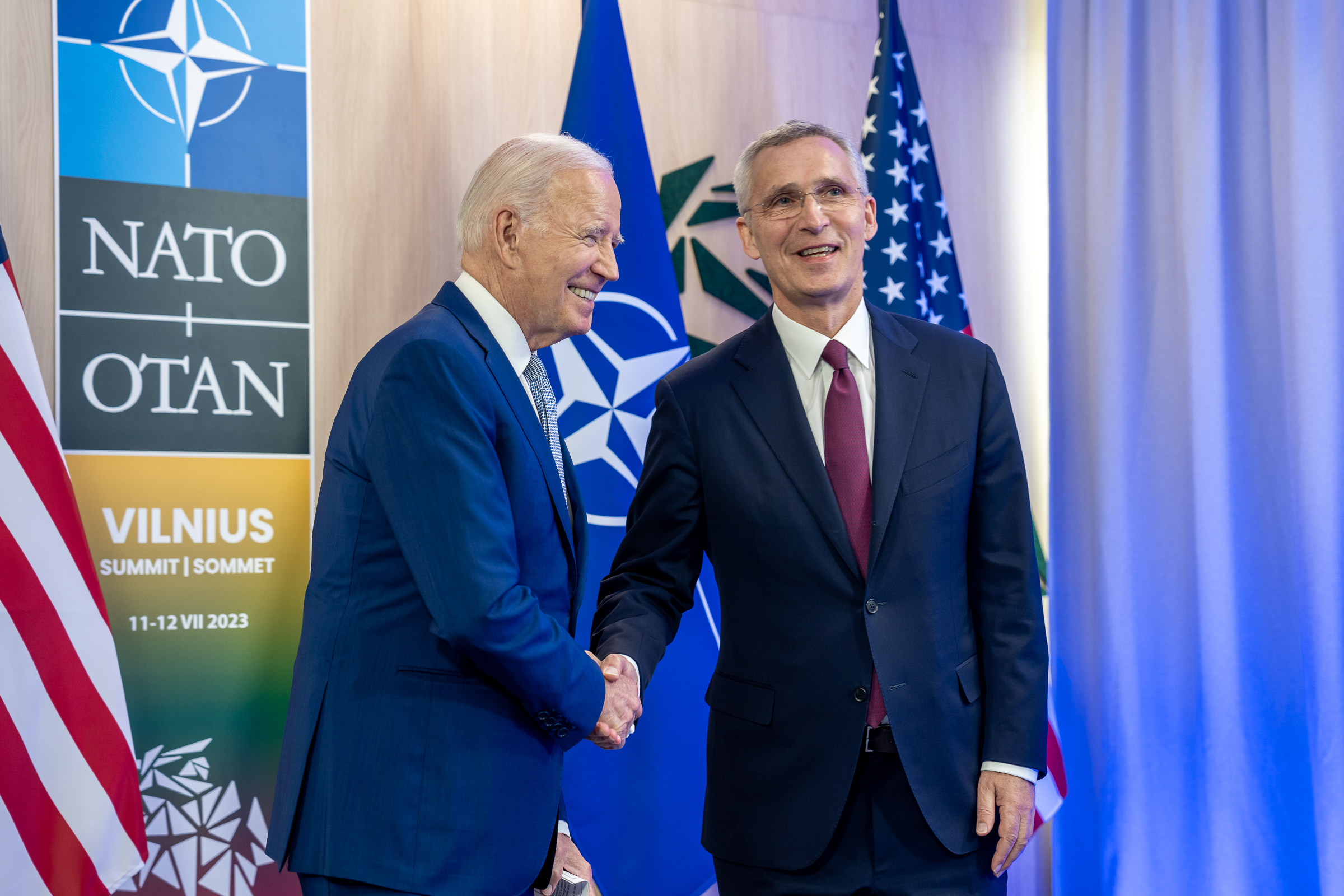Has NATO chained Europe to the US?

Through NATO, the United States has guaranteed the loyalty of Europe, the most important economic and political bloc in the world. Who will now follow them in the challenge to China. This is what Gray Anderson and Thomas Meaney, co-authors of an essay on the Atlantic Alliance , write in an opinion hosted by the New York Times
NATO has been a successful experiment, but for the Americans. This is what Gray Anderson and Thomas Meaney, co-authors of an essay on the Atlantic Alliance, write in an opinion hosted in the New York Times , according to whom the USA, since the post-war period, with a relatively limited investment in security in the Old Continent, has guaranteed the loyalty of the most important economic-political bloc in the world, which is now preparing to follow them in the challenge with China.
Other than brain death
Historian Gray Anderson and his colleague Thomas Meaney, researcher at the Max Planck Society of Göttingen, respectively curator and author of the work Natopolitanism: The Atlantic Alliance Since the Cold War begin by recalling the gloomy climate of just four years ago, when the President of the United States was called Donald Trump and the diagnosis of the state of health of NATO made by a leader like Macron spoke of "brain death" of the organization.
Today, the Vilnius summit opens with the historic decision to welcome Sweden as the 32nd member, while Finland had already joined the club last April. The war in Ukraine played the role of a catalyst for the unity of the countries of the Atlantic Alliance. With a joke attributed to Joe Biden, Anderson and Meaney underline how, if Russia pursued the design of dividing Europe, it ended up with a 'born' continent.
The true mission of NATO
This shift in the perception of NATO has re-evaluated its role as a defender of Europe. And yet, the authors point out, since its origins NATO was not an entity that had anything to do with military power. Rather, it represented the leverage to bind Western Europe to the larger project of forging a world order in which Americans provided protection in exchange for concessions in other fields such as trade or monetary policy.
If this was NATO's genuine mission, it has proved decisively successful. This could also be seen after the fall of the Soviet Union when NATO, by gradually incorporating the countries of Eastern Europe, guaranteed their inclusion not only in the international system but also in global markets, making sure that the promotion of collective security went hand in hand with free market ideology.
This pattern has seen the US carve out the role of Europe's main supplier of weapons, logistics, bases and strategies. For their part, the Europeans have taken advantage of this by keeping their military spending at such low levels as to make it doubtful that the Old Continent is able to guarantee its own security.
The paradox of a safer but weaker Europe
The emergence of an at least semi-autonomous European force capable of independent action has been inhibited by the very existence of NATO and its common standards in armaments which, together with the size and capabilities of the American defense industry, have favored the strengthening of the US military-industrial complex to the detriment of the emergence of authentic European competition. Paradoxically, the authors remark, the Alliance has weakened rather than strengthened its allies.
Yet the paradox is only superficial, as NATO, write Anderson and Meaney, "is functioning exactly as its post-war American planners had imagined, dragging Europe into a dependence on American power that reduces its room for manoeuvre".
US investment in European security
Moreover, this dependence has never implied excessive investments for Americans: according to a recent estimate, US contributions to NATO represent less than 6% of the Pentagon's annual budget. With much less than 100 billion dollars, therefore, Washington ensures that Europe remains firmly in its camp and therefore in its sphere of influence.
With the outbreak of war in Ukraine, this dynamic has only intensified. Scared to death of Russian aggression, Europeans have triggered the arms race with multibillion-dollar contracts to US defense firms. The Germans alone have allocated a good 100 billion euros, destined for purchases as important as an entire fleet of F-35s.
NATO in the Indo Pacific?
In conclusion, according to the authors, a decline of NATO in the coming years is very unlikely. On the contrary, clear signs of a possible alignment of the US's European allies in the emerging confrontation with China are already visible.
In fact, beyond a few isolated discontent that resulted, for example, in Macron's famous interview with Politico, in which the French President underlined that the Taiwan question is not Europe's business, it really seems that NATO is preparing to follow the lead of America in a distant theater like that of the Indo Pacific.
A very fresh proof of how Anderson and Meaney have hit the mark we had before our eyes a few hours ago, when the Italian Foreign Minister Tajani, greeting the news of Sweden's forthcoming entry into the Alliance on Twitter, tweeted: “ Now more attention to the Middle East, Asia and the Indo Pacific”.
Sweden's entry into #NATO is good news. Turkey's decision to side with the decision is good. Thus, the cohesion of the Atlantic Alliance is strengthened. Now more attention is paid to the Middle East, Africa and the Indo Pacific.
— Antonio Tajani (@Antonio_Tajani) July 11, 2023
This is a machine translation from Italian language of a post published on Start Magazine at the URL https://www.startmag.it/mondo/nato-vantaggio-stati-uniti-new-york-times/ on Sun, 16 Jul 2023 05:25:11 +0000.
